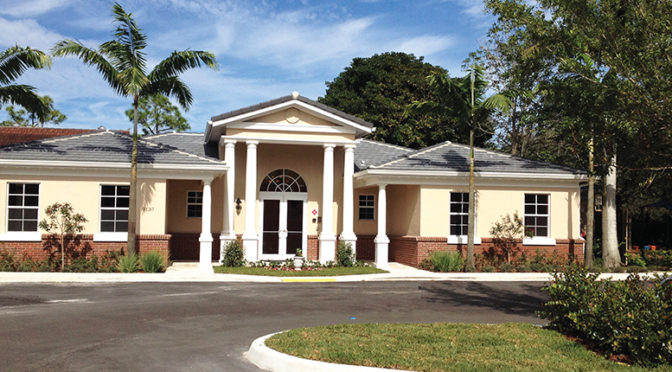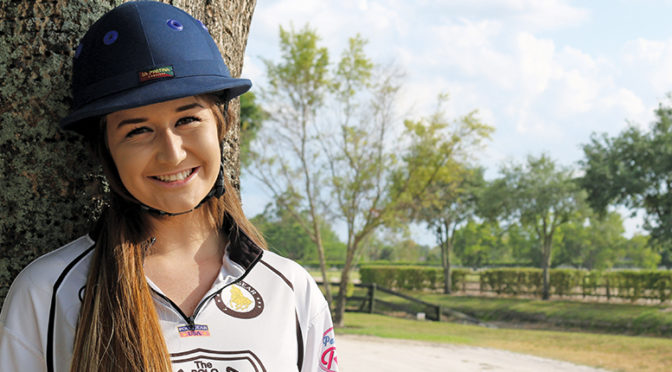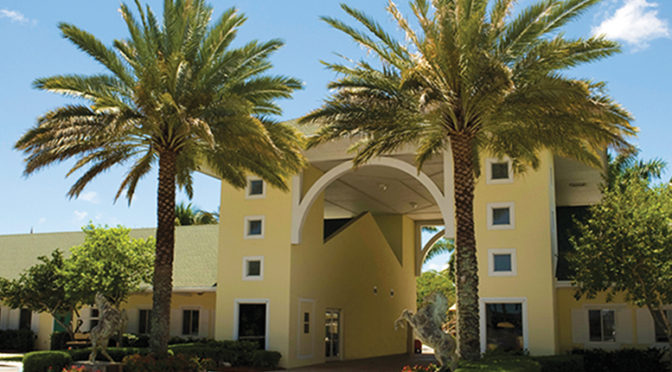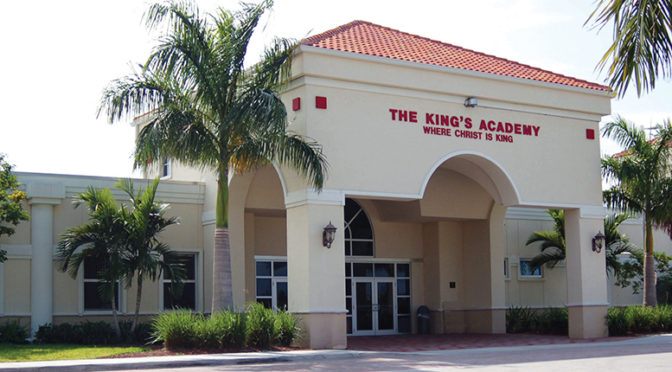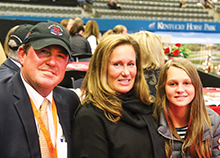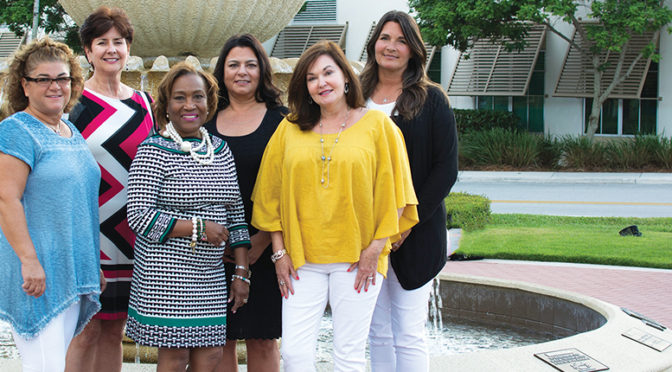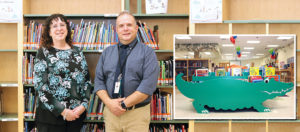Wellington The Magazine – June 2016 Preschool To Graduation Keeping Your Student On Track, Every Step Of The Way
Navigating through how best to educate a child doesn’t come with a road map. However, being mindful of some key tips can make the journey from pre-preschool to graduation more enjoyable and successful for both parents and children.
“The most important thing is to read to them constantly,” Little Place owner Susan Russell said. “Language is the most important thing, and if you can’t read and can’t comprehend, you can’t be successful in any field out there right now, or anytime. The importance of reading, even when they are infants, is known. It gets them ready for succeeding for the rest of their lives in whatever field they go into.”
Russell, who runs one of the oldest preschools in Wellington, said that across the nation, not enough children are able to read and comprehend. Taking the time to work with children is imperative. Ordinary, everyday things, such as asking a child to bring a ball or red socks provide a foundation of language and interaction.
“If you have that foundation, everything else will come,” Russell said. “It also gives the child self-worth. If you feel good about yourself, you can almost conquer anything.”
Having a good, strong foundation is the way to success, she stressed.
“Your fate is determined by how you feel about yourself and also your foundation in being able to conquer what is out there,” Russell said. “Language is one of the most important things, because with language comes math and everything else, science and history, and if you have that, everything comes together.”
There is a stark difference between children — even at the preschool level — who have been read to and who haven’t been read to at home, she explains. The time commitment isn’t much. Even a few short books, depending on the child’s attention span, will increase comprehension and language abilities.
Discussing colors, shapes, numbers and other everyday items that are encountered daily should be introduced to children through interaction, Russell said, pointing out that with the rise in technology, she has seen a decrease in children’s awareness.
“The more you expose them to things, the more they learn and the more vocabulary you’re using,” she said. “Taking them to the zoo and showing them the animals, taking them to the grocery store, taking them to the bank and explaining why you go to the bank. Every single thing you do is a learning process.”
Guidance counselor Lisa Kuperman at Wellington Elementary School notes that already knowing shapes, colors, numbers and similar introductory topics is not required but helps make for a smoother transition into formal schooling.
“We do have some children who don’t have any preschool experience, but it definitely does help when they have that knowledge,” she said.
Every school in Palm Beach County holds a kindergarten roundup, Kuperman said, where parents go and learn about expectations. Forming a routine, keeping calm and relaxed about the transition, getting dressed and breakfast on time, all help getting ready for school after the summer.
The elementary school years encompass transitions where students go from learning the basics to reading, writing, math and other building blocks. To help make the transitions on that level easier, Kuperman stresses constantly interacting and maintaining a reading schedule.
“Reading every day for at least 30 minutes is a big help,” she said. “Keeping up with your math skills… just reviewing, even when you’re on a vacation, reading signs, if you’re going across different states… always making questions out of different scenery that you could be observing. There are many different ways like that where you can learn without it seem like learning.”
Kuperman’s daughter recently transitioned from fifth to sixth grade, going from two teachers to six. Organization is crucial, she said, because the amount of independence and responsibility between fifth and sixth grade increases greatly.
Guidance counselor Judy Herrick at Wellington Landings Middle School visits the feeder schools, going to classrooms and telling students what classes they’ll be required to take, as well as explain elective classes, after-school activities, lunch, sports, rules, the dress code and other general information to help prepare students for the middle school experience.
“One of the big things for middle school is that while children in elementary school do have homework, many elementary schools do not grade homework. In middle school, they do, and that grade is part of the grade that goes into figuring out what they get in a marking period,” Herrick said. “It is also important for students to be relatively well-organized in knowing what supplies are in their backpack and how to access them, and learning their schedule relatively quickly, because they change classes every 50 minutes.”
If students miss six or more days in any class, the end-of-marking-period assessment must be passed in order to pass the class. “That’s another change,” she said.
Herrick suggested that students try the school lunch but be prepared to bring their own if they prefer. Some schools also allow students to carry water to remain hydrated. Using a planner, or assignment pad, will allow students to keep a record of when reports or special projects are due, and of their tests. With seven classes, Herrick said, being organized is extremely important, as is having a quiet place to do schoolwork.
As students and parents get ready for high school, it is important to learn about the various magnet schools and choice programs, Herrick said. Applications are due in December.
Guidance counselor Carey Geidel from Wellington High School helps students in their last four years before college.
“The big thing that all students have to understand is grade point average — GPA. Just like the Earth revolves around the Sun, everything in high school revolves around the GPA,” Geidel said.
As students enter the school, they begin their high school career, but also their adult life. One necessity is managing their GPA carefully, because that affects college opportunities. In middle school, grades are not cumulative. In high school, they are.
“That’s my biggest message to them,” Geidel said. “They follow, and that’s the primary thing for the freshmen to understand.”
The beginning of their senior year, Geidel said, is when students will begin applying for colleges and preparing to leave high school. In 11th grade, the students will be taking tests such as the SAT and the ACT. There are several programs available to help students prepare for the tests.
Before their senior year, Geidel suggests that students aim for a minimum 3.0 GPA, and one of 3.2 or above for university admission. Students should also become involved in at least one club activity or sport, if not more.
High school years, Geidel stressed, are really the time to foster more independence, because students soon will be off on their own.
Guidance counselor Chuck Green from Palm Beach Central High School stresses the importance of keeping an open line of communication with the student’s guidance counselor.
Every year, Green gives a presentation to the parents of freshmen, offering advice and perspective for everything in dealing with a teenager. He recommends reading The Primal Teen by Barbara Strauch. “They have to come to high school with the mind-set that this all counts,” he said.
Green suggests a “10-minute rule” for homework. “For every grade level that they’re in, there should be a minimum of 10 minutes of homework every night,” he explained. “If you’re a ninth-grader, that’s 90 minutes. For a student who is in an AP or an AICE class, those classes themselves could dictate an hour.”
Homework isn’t necessarily completing an assignment, it can also be studying, learning dates and names, and getting ready for tests and assessments, Green added.
The most complicated of the graduation requirements involves the credits students must earn — 24 to be precise. Each student must earn four math credits, four in English, three in science, three in social studies, one in fine arts, one in physical education and eight in electives, with any foreign language counting as an elective.
Students, and their parents, must also remember that in high school, students will have either seven classes a day or four classes every other day in a block schedule, with seven teachers having their own individual standards and measures of success.
Students should think about guidance counselors like library books to check out and provide advice, Green said, adding that students must be proactive, because many guidance counselors are assigned to 400 or more students.
“We can’t always seek the students out, but students should always be seeking us out,” Green said.
Parents should regularly communicate with the guidance department and celebrate their kids’ successes, he said.
“This is a time when kids start to become more independent,” Green said. “This is the gateway time. Kids want to start making decisions and doing certain things, and parents need to start loosening the reins.”
Until then, enjoy the journey and all of the adventures it offers.



